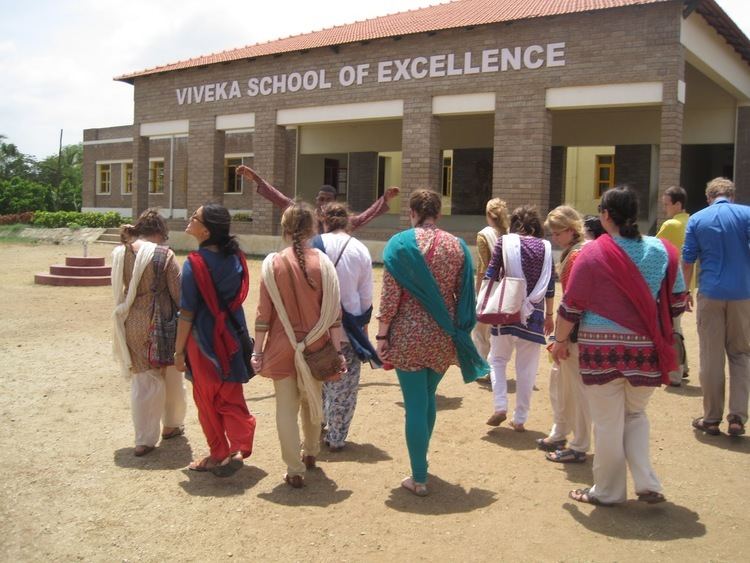Aurangabad
Maharashtra
From Heritage to Healing: The Spine Foundation in Aurangabad
Aurangabad, a city nestled in the heart of Maharashtra, India, is a place where history and heritage seamlessly converge with the vibrancy of modern life. Renowned globally for its UNESCO World Heritage Sites — the breathtaking Ajanta and Ellora Caves — Aurangabad attracts scholars, historians, and tourists alike who are drawn to its centuries-old rock-cut temples, Buddhist monasteries, and intricate sculptures. These magnificent landmarks, dating back to the 2nd century BCE, are not just symbols of India’s rich cultural and artistic legacy but also stand as testament to the city’s historic prominence.
Situated in the northern part of Maharashtra, Aurangabad is much more than its monuments. It is a thriving urban center surrounded by several rural and tribal pockets where communities continue to live in harmony with traditional practices, agriculture, and craftsmanship. This rich cultural tapestry is further accentuated by the city’s contribution to art, literature, textiles, and a culinary heritage that blends Mughal, Maratha, and local influences.
Yet, beneath this cultural opulence lies a pressing and often overlooked concern — access to specialized healthcare, particularly in the area of spinal health. Despite the city’s urban growth, the surrounding rural and tribal regions remain underserved, with limited infrastructure and medical outreach. This imbalance contributes to a host of preventable and treatable health problems that, if left unaddressed, significantly impact the quality of life.

The landscape surrounding Aurangabad is dotted with agricultural fields where countless individuals engage in physically demanding labor — from tilling soil and lifting heavy loads to prolonged bending and repetitive motion. Such strenuous activities, especially when performed without ergonomic awareness or proper medical guidance, often lead to chronic spinal issues. Among the most common ailments seen in these populations are spinal stenosis, herniated disks, spondylolisthesis, and severe mechanical back pain.
The lack of early diagnosis and timely intervention exacerbates these conditions, frequently resulting in prolonged suffering, disability, and reduced productivity. Rural residents, often unable to afford or access urban hospitals, tend to ignore the initial symptoms. Many seek relief only when the pain becomes debilitating, by which point the condition may have worsened considerably. Compounding this issue is the scarcity of orthopedic specialists and neurosurgeons in the public healthcare system of rural Maharashtra.
In response to this urgent health crisis, The Spine Foundation — a non-profit organization committed to advancing spinal health in underserved communities — recognized Aurangabad as a key intervention site. In 2017, after assessing the health needs and logistical feasibility, the Foundation initiated its first spine health medical camp in collaboration with the Government Medical College and Hospital, Aurangabad (GMCH).
This partnership marked the beginning of a long-term commitment to improve spinal care access in the region. From the very first camp, it was evident that the need for such services was immense. Patients arrived in large numbers, many traveling from remote villages and tribal hamlets, hoping for treatment that had otherwise remained inaccessible to them.

Since that first camp in 2017, The Spine Foundation has conducted numerous follow-up camps, outpatient screenings, and outreach drives across Aurangabad and its surrounding areas. These efforts have reached hundreds of patients, offering not just diagnoses and medications but also surgical interventions when required.
To date, 253 patients have received treatment, with 8 successful surgeries performed. These numbers, though seemingly modest, represent profound change. For individuals living with disabling back pain, regaining mobility through surgery or targeted therapy can mean a return to work, the ability to care for their families, or simply the ability to live without constant discomfort. Every surgery performed is a life reclaimed, a future restored, and a family supported.
Equally important has been the Foundation’s emphasis on education and awareness. Many patients previously unaware of the importance of posture, lifting techniques, or early intervention were educated through camps, talks, and printed materials. Post-operative patients and caregivers were trained on rehabilitation exercises, preventive strategies, and nutritional support — ensuring a holistic approach to spine care.
Looking forward, The Spine Foundation aims to expand its footprint across more rural talukas and tribal blocks of Aurangabad district. The goal is to establish satellite outreach centers in collaboration with local NGOs, primary health centers, and government bodies. These centers will serve as first-response hubs for spinal issues and as referral points for surgical cases.
Moreover, the Foundation seeks to digitize patient records, implement telemedicine services, and introduce community-based rehabilitation models — innovations that can drastically improve reach and efficiency while lowering costs.
Join Us in Making a Difference
At The Spine Foundation, every patient we treat in Gadchiroli represents a victory—not only over illness, but over neglect, poverty, and despair. If you believe in equitable healthcare and want to be part of a movement that brings advanced medical care to the most forgotten corners of our country, we invite you to: partner with us, donate generously, share our story.
Together, we can ensure that no spine is left unsupported, no pain goes unheard, and no community is left behind.

















 Sargur (Karnataka) : 09 JAN - 11 JAN 2026
Sargur (Karnataka) : 09 JAN - 11 JAN 2026
 Ganiyari (Chhattisgarh) : 16 JAN - 18 JAN 2026
Ganiyari (Chhattisgarh) : 16 JAN - 18 JAN 2026
